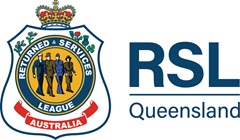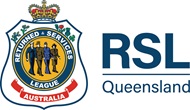
RSL must be a guiding light
04 October 2019- History & commemoration
Third Brigade Commander Brigadier Scott Winter acknowledged the historical contribution of the RSL during Townsville RSL Sub Branch’s centenary celebrations on 1 September.
In the shadows of the First World War, returning soldiers recognised a clear need to have a place where they could share and reflect upon the unique, devastating and damaging experiences of modern warfare. This central point of truth is important for us to reflect upon 100 years later.
In 1919, Australian soldiers returned from the battlefields of Europe and the Middle East changed, to a society that had itself been scarred and changed by the losses of war and to a population that did not have intimate knowledge or understanding of their veteran experience.
Simply demobilising and reintegrating into the community – stiff upper lip, harden up and crack on – did not work in too many cases.
Some returned soldiers found solace in the Government land grants, albeit in a country where life on the land has never been easy. Others took up leadership roles and sought to ensure that the legacy of the fallen would endure in the values of Australian society.
But the scars for far too many ran deep. Some men, such as Albert Jacka VC, transferred his leadership role from the battlefield to local government. Ultimately, he succumbed to his wounds, however, and died too young.
Brigadier Pompey Elliot, a towering presence in France and Belgium, took his own life a few short years after returning, seemingly haunted by the ghosts of those members of his Brigade who did not come home and a sense of responsibility that no one should ever have to bear.
In every small town across Australia, small but poignant memorials were raised to the fallen sons and daughters of that local community.
Out of this troubled environment rose the Returned and Services League – an organisation born of war and the experience of battle, focused wholly on supporting veterans. It was extremely successful in its impact and for many decades the RSL supported the veterans of two world wars with great empathy and understanding.
There have been periods in its 100-year history when the RSL has not been as successful. The most significant example is the period of the Vietnam War and the treatment of veterans of that conflict. Amidst the years of great success and periods of failure, there are lessons to be learned for today.
Success came from creating a safe space for veterans. A place where they could gather in shared camaraderie and understanding. A place where they could remember the fallen, reflect on their own sacrifices and feel valued for their contribution to the building of a nation.
What this looked like in the early years and many that followed, was a gathering place focused on service, where veterans could drink and share time together in a way that reflected the societal norms of the day. In this way their wellness or wellbeing was enhanced and wherever possible enabled veterans to feel empowered to live full and meaningful lives in the Australian community.
Failure came when there was exclusivity rather than inclusivity and when some veterans’ service was valued more than others. When there was judgement, rather than understanding. When the space was threatening rather than safe and when it put the past on a pedestal rather than focused on the needs of the present or the future.
Therefore, learning from the lessons of history, I challenge the RSL and the veterans of recent conflicts to take ownership of the future. We must recognise what caused success: safe space, inclusivity, camaraderie and wellbeing; and reject exclusivity and sacred cows, rather adapt to the needs of today and the future.
The veteran services space has become increasingly congested in recent years. Some of these new organisations flag the potential for emerging needs and delivery styles; others are more about an individual’s specific journey and will not last in the longer term. This veteran space is now difficult for our veterans to navigate; the RSL must be the guiding light.
I am optimistic, and I believe with good reason. The people who made the RSL work in the past are the same as those who can make it work in the future. Their hearts are in exactly the right place.
The current RSL Townsville leadership absolutely reflects this truth. Their hearts and minds are open to the needs of the next generation of veterans, and we need to enable those veterans to shape RSL 2.0 (or 3.0, 4.0...).
Already the signs are good. RSL Queensland provides outstanding support to the NQ Army Human Performance Centre, focusing on the whole of soldier, whole of life health and wellbeing, through families, resilience and prehabilitation initiatives.
Mates4Mates has taken a lead role in the veteran rehabilitation and wellbeing space, albeit with more work to do to ensure that entry to this space does not require a veteran to define themselves as broken.
At every turn, efforts are being made here – and in Thuringowa – to bring younger veterans in.
I do think that the next iteration of the RSL will look different. Perhaps more akin to a health club, with coffee shops, childcare, access to services and yes, a bar for those keen to share a glass or two and remember fallen friends.
It will not be for me to decide; rather, as in 1919, it must come from the clearly identified needs of the collective veteran community, who – through their shared experience – are the only ones who really know what they need and what will work.
One hundred years has gone quickly for our young nation. Successive wars and conflicts have meant that change has been enacted in contact with the enemy, literally. The RSL is a sandstone foundation pillar of the community and I believe will be into the future because we need it to be.
I salute the RSL on 100 years of support to the veteran community, through good times and bad, and commend it for the next 100 years of doing this even better as we honour the past, support the present and ensure we are prepared for the needs of an uncertain future.
Related News
Loading

